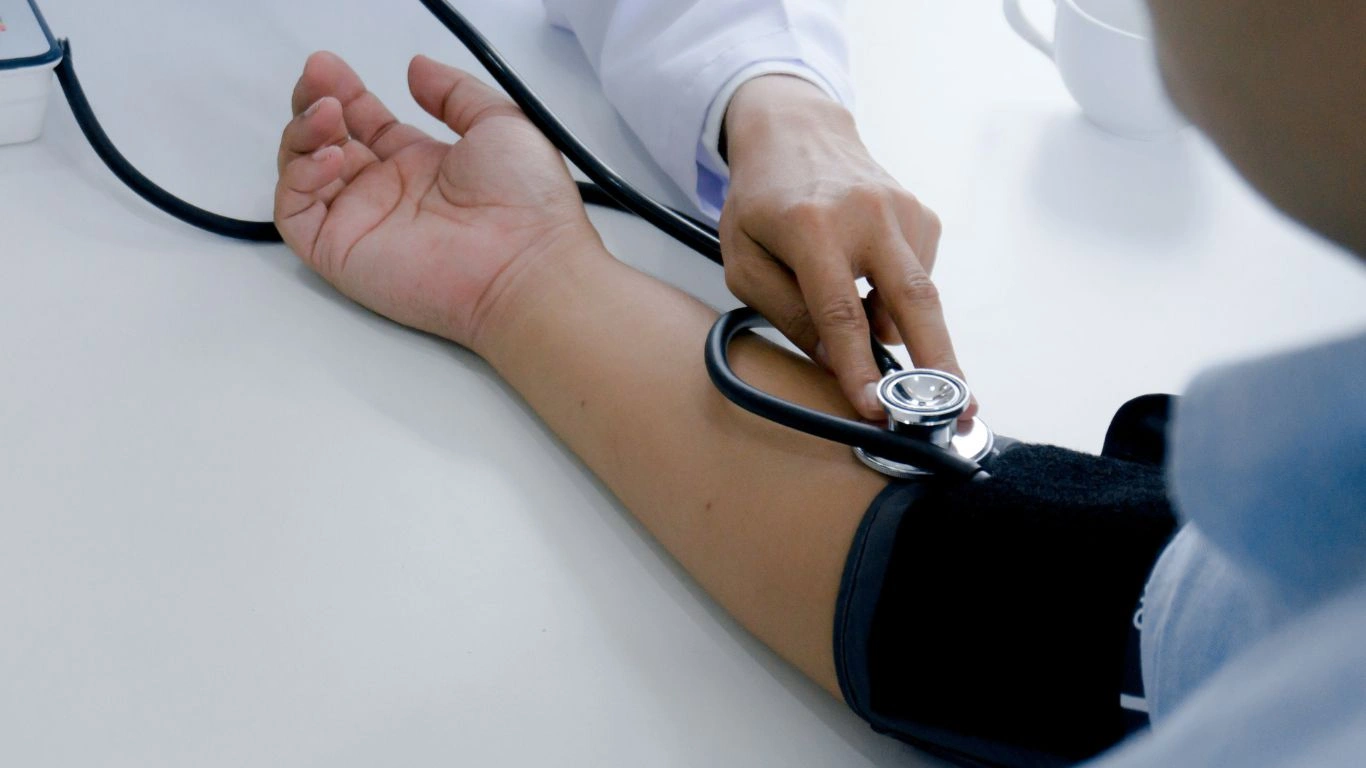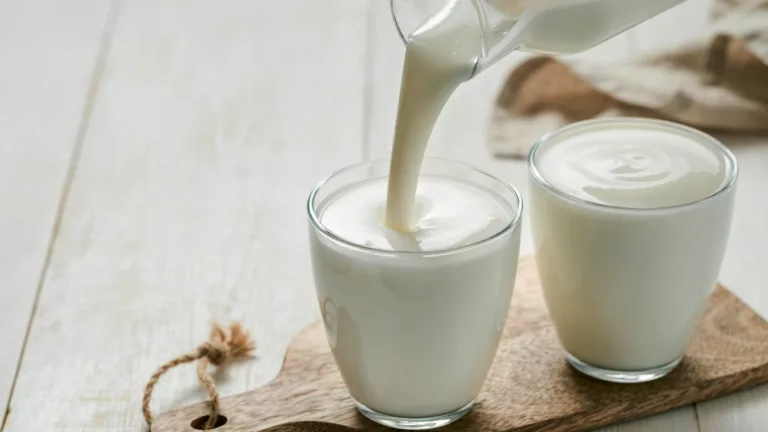Are Plant-Based Meats Safe for Blood Pressure? Discover the Truth
As an internal medicine physician specializing in hypertension management, I often find myself answering a common question from my patients: *Are plant-based meats safe for blood pressure?* With the rise of plant-based diets and alternatives to traditional animal-based proteins, it’s no surprise that more and more people are wondering if these plant-based meats could offer health benefits, particularly for those of us managing high blood pressure.
In my practice, I’ve seen a growing trend in patients shifting towards plant-based foods, often motivated by health concerns or ethical reasons. But, as with any dietary shift, it’s essential to dig a little deeper into how these alternatives impact various aspects of our health — especially blood pressure, which is a critical consideration for those with hypertension. Today, let’s explore whether plant-based meats can really be considered a healthy alternative for blood pressure management, or if they might pose any potential risks. After all, when you’re managing hypertension, every choice counts.
Understanding Plant-Based Meats and Their Popularity

Plant-based meats are made from various ingredients like soy, peas, lentils, and grains, designed to mimic the texture and taste of traditional meat products. Over the past few years, brands like Beyond Meat and Impossible Foods have skyrocketed in popularity, and you can now find plant-based burgers, sausages, and even meatballs on supermarket shelves. These products are often touted as being healthier, more sustainable, and a kinder option for the planet. But what do they mean for your health — especially your blood pressure?
What’s in Plant-Based Meats?
To understand whether plant-based meats are a good choice for those with hypertension, it’s important to look at what goes into them. These products are primarily made from protein-rich plants like peas, soybeans, and rice. They’re also packed with other ingredients like oils (often coconut or canola), seasonings, and preservatives to give them that meaty flavor and texture.
Many of these plant-based meat alternatives are fortified with vitamins and minerals, but they can also be quite high in sodium. This is a critical factor for individuals managing hypertension, as too much sodium can elevate blood pressure. As a physician, I always emphasize that sodium intake is a crucial consideration when choosing any processed food — including plant-based meats. For example, a single serving of plant-based meat could contain 400-600 mg of sodium or more, depending on the brand.
How Sodium Affects Blood Pressure

Let’s take a quick detour into the science behind sodium and blood pressure. Sodium plays a major role in regulating fluid balance in the body. When you consume too much sodium, your kidneys may struggle to filter it out effectively, leading to increased water retention. This excess fluid puts added pressure on your blood vessels, contributing to high blood pressure.
For most individuals, the recommended daily sodium intake is around 2,300 milligrams, though for those with hypertension or at risk of developing it, reducing sodium intake to around 1,500 milligrams is often advised. That’s why it’s important to keep an eye on sodium content when choosing plant-based meats, as many of these products can add up quickly in terms of sodium load.
The Sodium in Plant-Based Meats: A Hidden Concern?
Now, I’m not saying that all plant-based meats are inherently bad for your blood pressure — far from it. In fact, many brands are becoming more aware of this issue and are reducing sodium content in their products. However, it’s essential to check the labels and be mindful of the total sodium intake throughout your day. As a general rule, processed foods (even those that are plant-based) often contain higher sodium levels than whole foods like fresh vegetables, legumes, and grains.
Can Plant-Based Meats Be Part of a Heart-Healthy Diet?

So, what’s the bottom line? Are plant-based meats safe for those of us with high blood pressure? The answer isn’t entirely black and white. Yes, plant-based meats can be part of a heart-healthy diet — but it’s important to approach them with caution and make sure they’re not packed with excess sodium or unhealthy fats. When consumed in moderation and paired with plenty of fresh vegetables, whole grains, and other unprocessed foods, plant-based meats can be a great alternative to traditional meat, especially for those looking to reduce their saturated fat intake.
In my experience, I’ve found that the key is balance. If you’re looking to lower your blood pressure or keep it in check, it’s essential to monitor your overall sodium intake. If you love plant-based meats and want to include them in your diet, just be sure to read the labels carefully, and opt for brands that offer lower sodium options. Remember, the goal is to incorporate these foods into a well-rounded, nutrient-rich diet.
Look for Low-Sodium Plant-Based Meat Options
Luckily, as the demand for plant-based alternatives has grown, more companies are offering products with lower sodium content. Always check the nutrition label before purchasing — and pay attention to serving sizes, as that’s where sodium can sneak up on you. Additionally, you can balance out the sodium intake by eating plenty of fresh, unprocessed foods that are naturally low in sodium, like leafy greens, berries, and whole grains.
Other Considerations: Is the Plant-Based Diet Really Heart-Healthy?

When discussing the safety of plant-based meats for blood pressure, it’s important to think beyond just sodium levels. For individuals managing hypertension, the quality of the overall diet is just as important as the specific foods you choose. In my years of experience, I’ve found that a holistic approach to nutrition — focusing on whole, nutrient-dense foods — works best for long-term heart health.
The plant-based movement has often been associated with lower risks of chronic diseases, including heart disease and high blood pressure. But just like any dietary pattern, not all plant-based diets are created equal. For example, a plant-based diet full of processed foods (like plant-based meats, chips, and sugary snacks) may not offer the same heart-health benefits as a whole-food, plant-based diet rich in fresh vegetables, legumes, and healthy fats. While plant-based meats can be a part of the equation, they shouldn’t be the only focus.
The Role of Whole Foods in Lowering Blood Pressure
One of the best strategies I recommend to my patients is focusing on the foundation of a whole-food plant-based diet. This means prioritizing foods that are unprocessed and rich in nutrients like potassium, magnesium, and fiber — all of which play a crucial role in controlling blood pressure. Fresh fruits and vegetables, whole grains, legumes, nuts, and seeds should be the cornerstones of your meals. I’ve noticed that those who follow this kind of balanced approach to eating tend to experience better results when it comes to managing their blood pressure.
For instance, foods like spinach, sweet potatoes, bananas, and avocado are packed with potassium, which helps balance out the negative effects of sodium. Foods high in magnesium, such as beans, nuts, and leafy greens, can help relax blood vessels and improve circulation. Fiber-rich foods, which are abundant in fruits, vegetables, and whole grains, support heart health by lowering cholesterol and improving blood vessel function.
Are Plant-Based Meats a Good Source of Protein for Hypertension Patients?

Another question I often hear from my patients is whether plant-based meats can provide adequate protein for those managing high blood pressure. The answer is a bit more nuanced. Yes, plant-based meats can be a good source of protein, but it’s important to remember that not all plant proteins are created equal. In my experience, a well-balanced diet includes a variety of protein sources, and plant-based meats can certainly be part of that variety.
Plant-based protein sources such as beans, lentils, tofu, tempeh, and quinoa offer many of the same benefits as the protein found in animal products, without the added saturated fat. Plant-based meats, especially those made from soy, can also be a good protein option for hypertension patients. However, as with any processed food, it’s essential to choose brands that provide adequate protein levels without an overload of sodium or unhealthy fats.
Keep in mind that while plant-based meats are often fortified with essential nutrients like iron and B12, it’s still important to include a wide variety of whole plant foods in your diet to ensure you’re meeting all of your nutritional needs. For example, including legumes, nuts, seeds, and whole grains in your diet will not only provide protein but also give you the added benefits of fiber, antioxidants, and other essential micronutrients.
The Benefits of Plant-Based Protein vs. Animal Protein
One significant advantage of plant-based protein is that it tends to be lower in saturated fat and cholesterol compared to animal-based protein. As many of you already know, reducing saturated fat intake is key to maintaining healthy blood pressure levels. In fact, research has shown that replacing animal protein with plant protein can help lower blood pressure and improve heart health.
One of the most notable studies I’ve come across in my practice found that individuals who switched to a plant-based diet — including plant-based proteins — had a significantly lower risk of developing hypertension compared to those who ate more animal-based products. Additionally, plant-based diets are linked to a reduction in overall inflammation, which is another contributing factor to high blood pressure.
How to Include Plant-Based Meats in Your Hypertension-Friendly Diet

Including plant-based meats in your diet doesn’t have to be difficult, but it does require a little planning and mindfulness — especially when it comes to sodium content. If you’re managing high blood pressure, it’s essential to find a balance between enjoying plant-based alternatives and ensuring you’re still focusing on whole, unprocessed foods that provide the necessary nutrients for heart health.
One simple strategy I recommend to my patients is to incorporate plant-based meats into meals a few times a week, rather than every day. This allows you to enjoy the variety and convenience of plant-based options without overdoing the sodium or relying too heavily on processed foods. I’ve personally found that variety is key in maintaining a heart-healthy diet that’s both enjoyable and sustainable in the long term.
Try Homemade Plant-Based Meat Alternatives
If you’re concerned about the sodium content in store-bought plant-based meats, why not try making your own? Homemade plant-based burgers or “meatballs” made from ingredients like lentils, quinoa, and chickpeas can be a healthier alternative. You can control the amount of salt and choose heart-healthy seasonings like garlic, herbs, and lemon juice to enhance flavor without relying on processed ingredients.
By making plant-based meats from scratch, you can also increase the fiber content of your meals and ensure you’re getting plenty of heart-healthy fats from ingredients like avocado or olive oil. Plus, homemade meals tend to be more cost-effective and can be tailored to your own taste preferences, which is always a bonus!
Managing Hypertension with Plant-Based Options: A Long-Term Approach

As we wrap up our conversation about plant-based meats and their role in managing blood pressure, I want to emphasize that the most important part of any dietary change is consistency and mindfulness. It’s not about a single meal or a quick fix; it’s about adopting a sustainable, balanced approach to your overall lifestyle. In my experience as an internal medicine physician, patients who are proactive in understanding the foods they consume tend to experience better long-term outcomes in managing their hypertension.
The key to managing blood pressure — especially for those of us trying to incorporate more plant-based options into our diets — is taking small but meaningful steps. And while plant-based meats can play a role in that, they should always be part of a broader strategy focused on whole, nutrient-dense foods. Combining plant-based meats with a variety of fresh fruits, vegetables, whole grains, and healthy fats will not only help keep your blood pressure in check but also improve your overall health and well-being.
Understanding the Risks of Over-Reliance on Processed Plant-Based Meats
While I’ve discussed the potential benefits of plant-based meats for those managing hypertension, it’s important to highlight the risks of relying too heavily on processed plant-based products. In the medical field, we often stress the importance of a well-rounded, whole-foods-based approach to health, and the same goes for hypertension management. Even though plant-based meats are typically lower in saturated fat compared to animal proteins, they are still processed foods. The more you process a food, the more it loses its inherent nutritional value.
For example, while the protein and certain micronutrients in plant-based meats might be appealing, these products can also contain added sugars, unhealthy oils, and preservatives. As I’ve noted before, many of these plant-based meats are also high in sodium, which can be a serious concern for individuals with hypertension. This is why I always recommend that my patients make whole, minimally processed foods the foundation of their diet, using plant-based meats as an occasional addition rather than a regular staple.
The Importance of Balance: Creating a Hypertension-Friendly Meal Plan

If you’re thinking about incorporating plant-based meats into your meals while managing hypertension, I suggest taking a balanced approach. In my practice, I’ve worked with many patients who have successfully reduced their blood pressure by adopting a whole-food, plant-based diet, rich in fiber, vitamins, and minerals. The idea is to make your meals diverse, using plant-based meats in moderation and pairing them with a variety of heart-healthy, low-sodium foods.
Building Your Hypertension-Friendly Meal Plan
Start by focusing on meals that center around vegetables, legumes, and whole grains. These foods are naturally high in potassium, magnesium, and fiber — all of which are essential for blood pressure control. Consider meals like quinoa salads with roasted veggies, lentil soups, or stir-fries with tofu, tempeh, or even plant-based meat alternatives. These dishes provide protein without the sodium overload often found in highly processed plant-based meats.
Next, add healthy fats into your diet. Avocados, olive oil, and nuts are all great options that contribute to better heart health. Healthy fats can also help improve the absorption of fat-soluble vitamins like A, D, E, and K. I’ve found that incorporating these healthy fats into meals not only supports blood pressure control but also helps keep you feeling satisfied, which is an important part of any diet.
Lastly, don’t forget about the importance of hydration. Drinking enough water throughout the day helps maintain optimal blood pressure and supports overall heart health. Herbal teas, fresh lemon water, or even infused water with cucumber or mint can also add variety and flavor without the added sugar or sodium found in sugary drinks.
References for Further Reading on Hypertension and Plant-Based Diets
If you’re looking to dive deeper into the science of hypertension and the impact of plant-based diets, there are several resources that can offer valuable information:
- National Institutes of Health (NIH) – Research on blood pressure management and heart health.
- Health.com – Articles and tips on hypertension and healthy eating.
- American Heart Association – Information on heart-healthy diets and lifestyle changes.
Disclaimer
Before making any significant changes to your diet, especially if you have hypertension or any other medical condition, I always recommend consulting with a healthcare professional or dietitian. Everyone’s body is unique, and it’s essential to approach any dietary changes in a way that aligns with your personal health needs. This article provides general information and should not be taken as medical advice tailored to your specific condition.

Dr. Gwenna Aazee is a board-certified Internal Medicine Physician with a special focus on hypertension management, chronic disease prevention, and patient education. With years of experience in both clinical practice and medical writing, she’s passionate about turning evidence-based medicine into accessible, actionable advice. Through her work at Healthusias.com, Dr. Aazee empowers readers to take charge of their health with confidence and clarity. Off the clock, she enjoys deep dives into nutrition research, long walks with her rescue pup, and simplifying medical jargon one article at a time.






